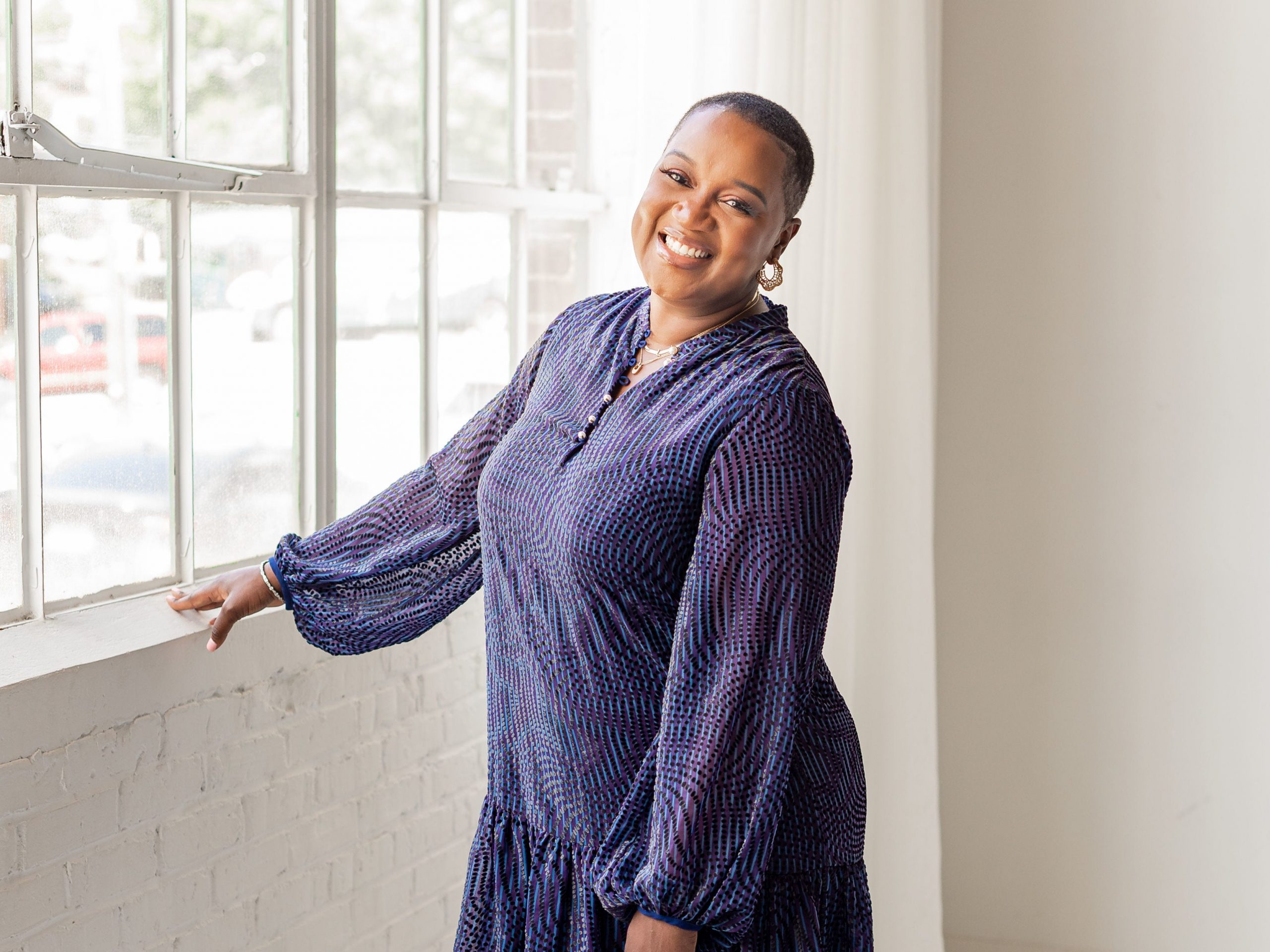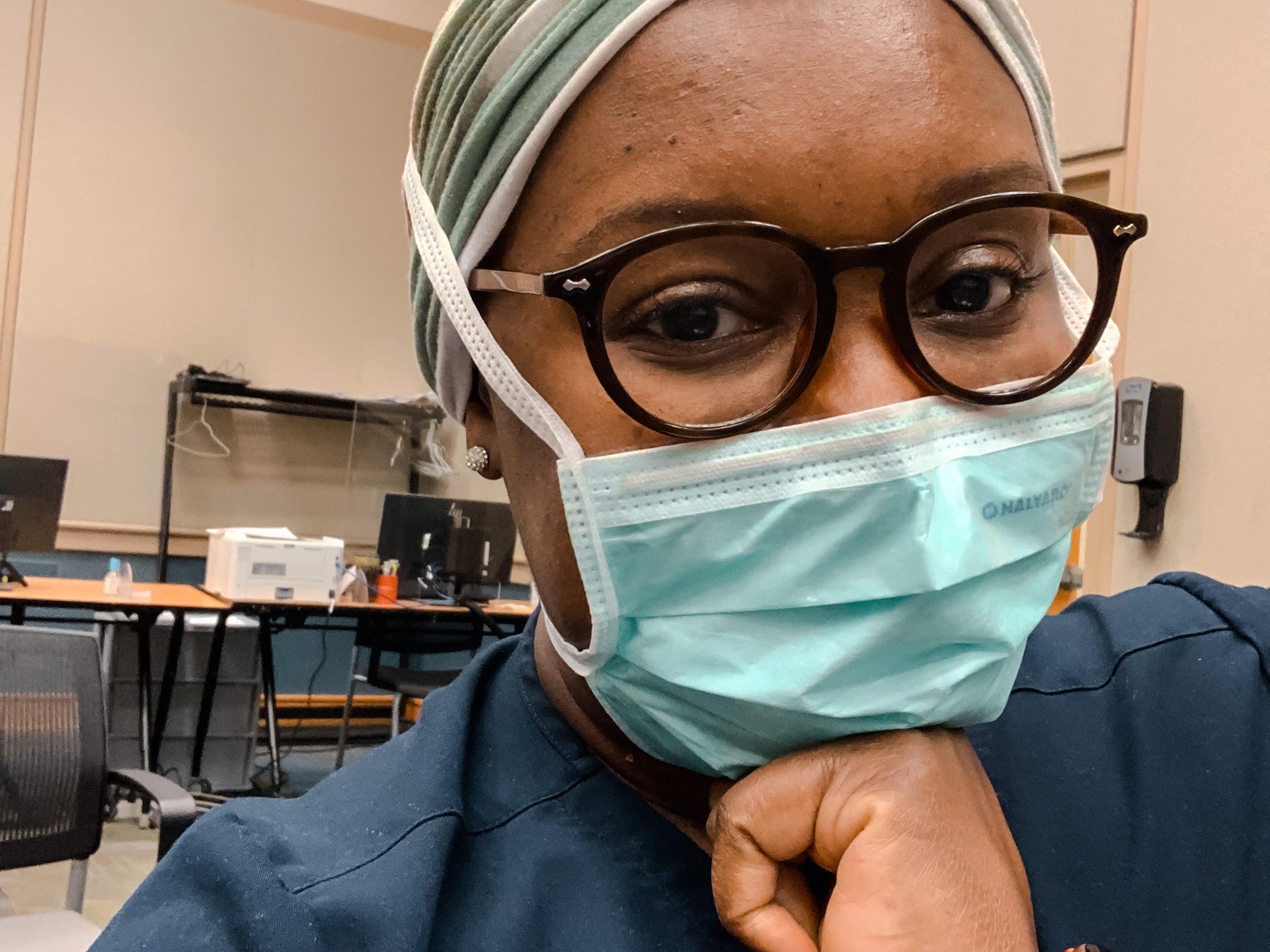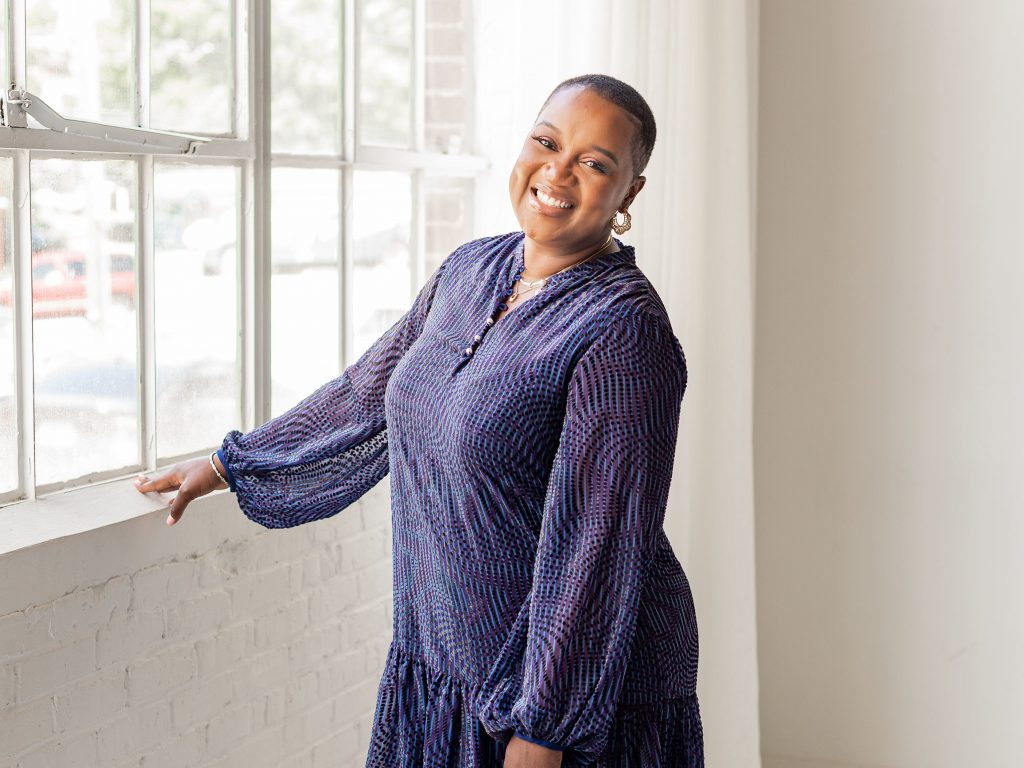
- Attorney and registered nurse Irnise Williams is helping other nurses leave the bedside and start their own companies.
- "There are so many ways that we can serve our community outside of the hospital," Williams said.
- The pandemic worsened problems that nurses say they've been facing for years, leading many to leave the profession.
Irnise Williams is an attorney with her own law firm. She's also a registered nurse who was on the frontlines in New York City in March 2020, treating some of the country's first COVID-19 patients.
Williams said working in chaos for more than a year in the pandemic made her to decide to quit after 13 years of nursing. She said, like many of her nurse peers in the US, she received minimal mental health, burnout, or staffing support while treating the country's sickest patients amid an unprecedented global pandemic.
The COVID-19 pandemic made Williams realize her law degree, which she received from Howard University School of Law in 2014, put her a unique position to give the support she lacked to her fellow nurses who were looking to build their own businesses.
"Five hundred thousand nurses are supposed to be leaving in the next year, and people are saying, 'What they're gonna do?'" Williams said in an interview with Insider. "They're gonna take the skills that they were using and not making any money for, to actually make money and have a schedule that is beneficial to their life."
Educating and 'empowering nurses to leave the bedside'
After working in trauma and COVID-19 units between March 2020 and April 2021 as a travel nurse, Williams rebranded her medical malpractice firm, which she launched in 2017, to one that helps nurse entrepreneurs start their own businesses.
She said once the pandemic hit, "I was like, 'I could die tomorrow, so maybe I should go out and do what it is that I said that I wanted to do.'"
Now, Williams wants to be a resource for nurses and nurse practitioners transitioning from caring for patients to owning businesses, walking them through startup documentation and ensuring they are in regulatory compliance. She offers online classes that help nurses, midwives, physician assistants, and other clinicians build sustainable and profitable businesses.
Williams said her clients have told her all they knew was how to be an employee, and many attorneys they turned to asking for guidance couldn't help with starting a business.
"There are very few who are out here supporting nurses or educating, empowering nurses to leave the bedside," she said.
The pandemic worsened problems that nurses said they've been facing for years, like treating too many patients at once, on-the-job violence, and poor work environments, driving thousands of healthcare workers, including Williams, to leave the industry.
Williams doesn't regret leaving bedside nursing, and admitted she should have quit "a long time ago." Her last straw occurred at a hospital in Baltimore, when she said administrators did not provide burnout or mental health support nurses had been pleading for.
"You're not really taking care of patients, you're just surviving for 12 hours and stabilizing," she said. "I really want to care for my patients, and you can't do that in the crisis that we're in now."
Some say the nurse exodus could cause the healthcare system to crumble. But Williams takes a more optimistic view: Nurses have an opportunity right now to use their medical training to create their own businesses free from what they feel are unsupportive hospital administrators.

Nurses can serve their communities just as well outside of a hospital
Within healthcare, many physicians are no stranger to business: About half of them own private practices, according to the American Medical Association.
But nurses are another story. There are few reputable statistics on how many nurses or nurse practitioners run their own firms, and Williams said she and her peers seldom receive entrepreneurial education in nursing school.
But innovation in healthcare technology and the wellness industry has created an opening for nurse entrepreneurs, Williams said. She's seen a spike in nurses and nurse practitioners opening up healthcare technology firms, medical spas, and IV hydration clinics.
The country's leading health and biotech investors recently told Insider funding for digital health companies could bring in $20 billion in 2022. Investors were particularly optimistic about startups involving mental health, personal health tracking, maternal wellbeing, and care delivery innovation.
Wellness is another bright spot for entrepreneurs, as the global health and wellness market could hit 7,656.7 billion by 2030, according to Precedence Research.
Williams encourages nurse entrepreneurs to work together, since they understand how to leverage their skills and protect their licenses.
Most importantly, Williams wants to remind nurses not to feel guilty for leaving bedside care.
"There are so many ways that we can serve our community outside of the hospital that are just as impactful, just as beneficial, and just as powerful," she said.
Dit artikel is oorspronkelijk verschenen op z24.nl

